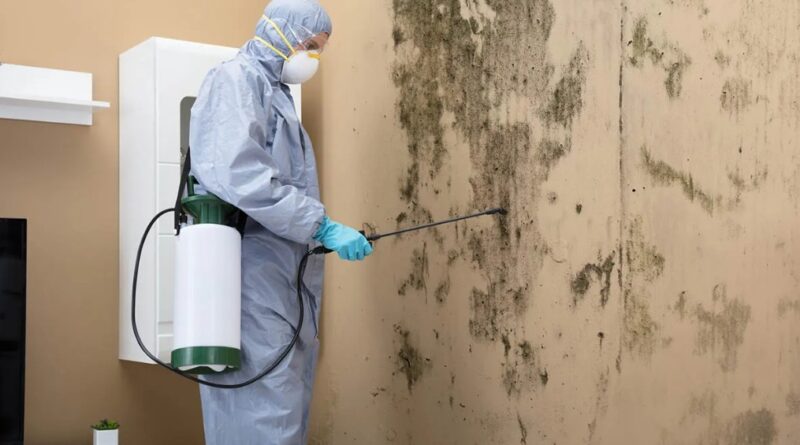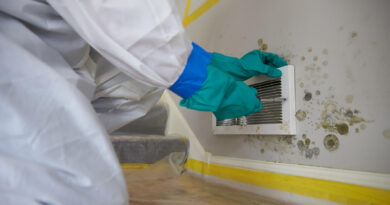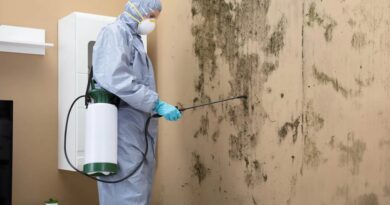Expert Mold Remediation in New Brunswick NJ: What Sets the Pros Apart
Mold infestations can be a homeowner’s worst nightmare. Not only do they pose health risks, but they can also lead to significant property damage if not addressed promptly and effectively. In New Brunswick, NJ, where humidity levels can soar, understanding the nuances of Expert Mold Remediation in New Brunswick NJ is crucial. This article delves into what distinguishes professional mold remediation services from DIY attempts, ensuring that residents are well-informed when seeking help.
Understanding Mold and Its Risks
What is Mold?
Mold is a type of fungus that thrives in damp environments. It reproduces through spores that can easily become airborne, leading to widespread contamination. Common types of mold found in homes include:
- Aspergillus: Often found in damp areas, it can cause respiratory issues.
- Cladosporium: Typically appears as black or green spots and can trigger allergies.
- Stachybotrys: Known as black mold, it is particularly hazardous and can lead to severe health problems.
Health Implications
Exposure to mold can result in various health issues, particularly for individuals with pre-existing conditions. Symptoms may include:
- Respiratory problems
- Skin irritation
- Allergic reactions
- Fatigue and headaches
Understanding these risks underscores the importance of timely and effective mold remediation.
The Importance of Professional Mold Remediation
Expertise and Training
One of the primary advantages of hiring professionals for mold remediation is their expertise. Certified mold remediation specialists undergo rigorous training to understand mold behavior, health risks, and effective removal techniques. They are equipped with the knowledge to:
- Identify different types of mold
- Assess the extent of contamination
- Implement safe removal procedures
Advanced Equipment
Professionals utilize specialized equipment that is often unavailable to the average homeowner. This includes:
- Air scrubbers: These devices filter out mold spores from the air, improving indoor air quality.
- Moisture meters: Used to detect hidden moisture sources that could lead to mold regrowth.
- HEPA vacuums: Essential for safely removing mold spores without spreading them further.
Comprehensive Approach
Expert mold remediation involves more than just cleaning visible mold. Professionals follow a systematic process that includes:
- Assessment: Identifying the source of moisture and extent of mold growth.
- Containment: Preventing the spread of spores during the removal process.
- Removal: Safely eliminating mold-infested materials and cleaning affected areas.
- Restoration: Repairing any damage caused by mold and restoring the environment.
The Mold Remediation Process
Initial Inspection
The first step in expert mold remediation is a thorough inspection of the property. Professionals look for visible signs of mold and use advanced technology to detect hidden mold and moisture sources. This comprehensive assessment is crucial for developing an effective remediation plan.
Containment Strategies
To prevent mold spores from spreading during the remediation process, professionals implement containment strategies. This may involve:
- Sealing off affected areas with plastic sheeting
- Using negative air pressure machines to filter air
- Turning off HVAC systems to avoid circulating spores
Mold Removal Techniques
Once containment is established, the actual removal process begins. Professionals employ various techniques, including:
- Physical removal: Disposing of mold-infested materials such as drywall, carpeting, and insulation.
- Chemical treatments: Applying antifungal solutions to kill remaining mold spores.
- Cleaning and sanitizing: Thoroughly cleaning surfaces to eliminate any traces of mold.
Restoration and Repair
After mold removal, the final step is restoration. This may involve:
- Replacing damaged materials
- Repairing structural elements
- Implementing moisture control measures to prevent future infestations
DIY vs. Professional Mold Remediation
Risks of DIY Approaches
While some homeowners may consider tackling mold issues themselves, this approach can be fraught with risks. Common pitfalls include:
- Inadequate removal: DIY methods often fail to eliminate all mold spores, leading to regrowth.
- Health hazards: Without proper protective gear, individuals may expose themselves to harmful spores.
- Structural damage: Improper removal techniques can cause further damage to the property.
Benefits of Hiring Professionals
Engaging expert mold remediation services offers numerous benefits, including:
- Efficiency: Professionals can complete the job more quickly and effectively than most DIY efforts.
- Safety: Trained specialists use protective equipment and follow safety protocols to minimize health risks.
- Long-term solutions: Experts not only remove mold but also address underlying moisture issues to prevent recurrence.
Choosing the Right Mold Remediation Service
Credentials and Certifications
When selecting a mold remediation service, it’s essential to verify their credentials. Look for companies that are certified by recognized organizations, such as the Institute of Inspection, Cleaning and Restoration Certification (IICRC). This ensures that they adhere to industry standards and best practices.
Experience and Reputation
Researching a company’s experience and reputation can provide valuable insights. Consider:
- Customer reviews: Look for testimonials and ratings from previous clients.
- Years in business: Established companies are likely to have a proven track record.
- Local expertise: Familiarity with New Brunswick’s climate and common mold issues can be advantageous.
Comprehensive Services
Opt for a company that offers a full range of services, including:
- Mold inspection and testing
- Remediation and removal
- Restoration and repair
- Preventative measures
Preventing Future Mold Growth
Moisture Control
The key to preventing mold growth is controlling moisture levels in your home. Consider implementing the following strategies:
- Dehumidifiers: Use these devices in areas prone to humidity, such as basements and bathrooms.
- Proper ventilation: Ensure that bathrooms, kitchens, and laundry rooms are well-ventilated to reduce moisture buildup.
- Regular inspections: Periodically check for leaks and water damage, addressing issues promptly.
Regular Cleaning and Maintenance
Maintaining a clean and dry environment can significantly reduce the risk of mold growth. Regularly clean areas prone to moisture, such as:
- Bathrooms: Use mold-resistant products and clean surfaces regularly.
- Kitchens: Wipe down surfaces and ensure proper ventilation during cooking.
- Basements: Keep these areas dry and free from clutter to minimize moisture retention.
Conclusion
Expert mold remediation in New Brunswick, NJ, is essential for maintaining a safe and healthy living environment. By understanding the risks associated with mold, the importance of professional services, and effective prevention strategies, homeowners can take proactive steps to protect their properties. When faced with a mold issue, remember that the expertise, advanced equipment, and comprehensive approach of professionals can make all the difference in ensuring a thorough and lasting solution.
For more information about Expert Mold Remediation in New Brunswick New Jersey please contact:
Business Name: New Jersey Mold Specialist
Address: 92 Bayard St # 203, New Brunswick, NJ 08901
Phone: (732) 973-9352
Website: https://njmoldspecialist.com/
Google Map: https://maps.app.goo.gl/kg1JHzNPLm666hW3A




